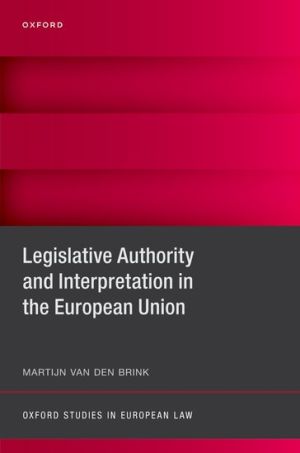
Although legislation has in the past decades become the legal cornerstone of European integration, the EU legislature remains systematically neglected in EU legal scholarship. This book explores the virtues of the legislative process and the nature of legislative acts and asks how moving the legislature from the sidelines to the centre of legal analysis changes our understanding of the EU Court of Justice's role.
The first part of the book examines how the CJEU should exercise its authority relative to the legislature. The author argues that as the legislature lends democratic legitimacy to EU law and is a better lawmaker than the judiciary, that judicial deference to the legislature's choices is required in all but exceptional circumstances.
The second part of the book sets forth a theory of legislative interpretation that enables judicial officials to respect the wishes of the legislature. This theory shows, first, that the legislature can aggregate the intentions of individual legislators into a coherent legislative intent, and second, how this legislative intent can be identified from the publicly available legislative material.